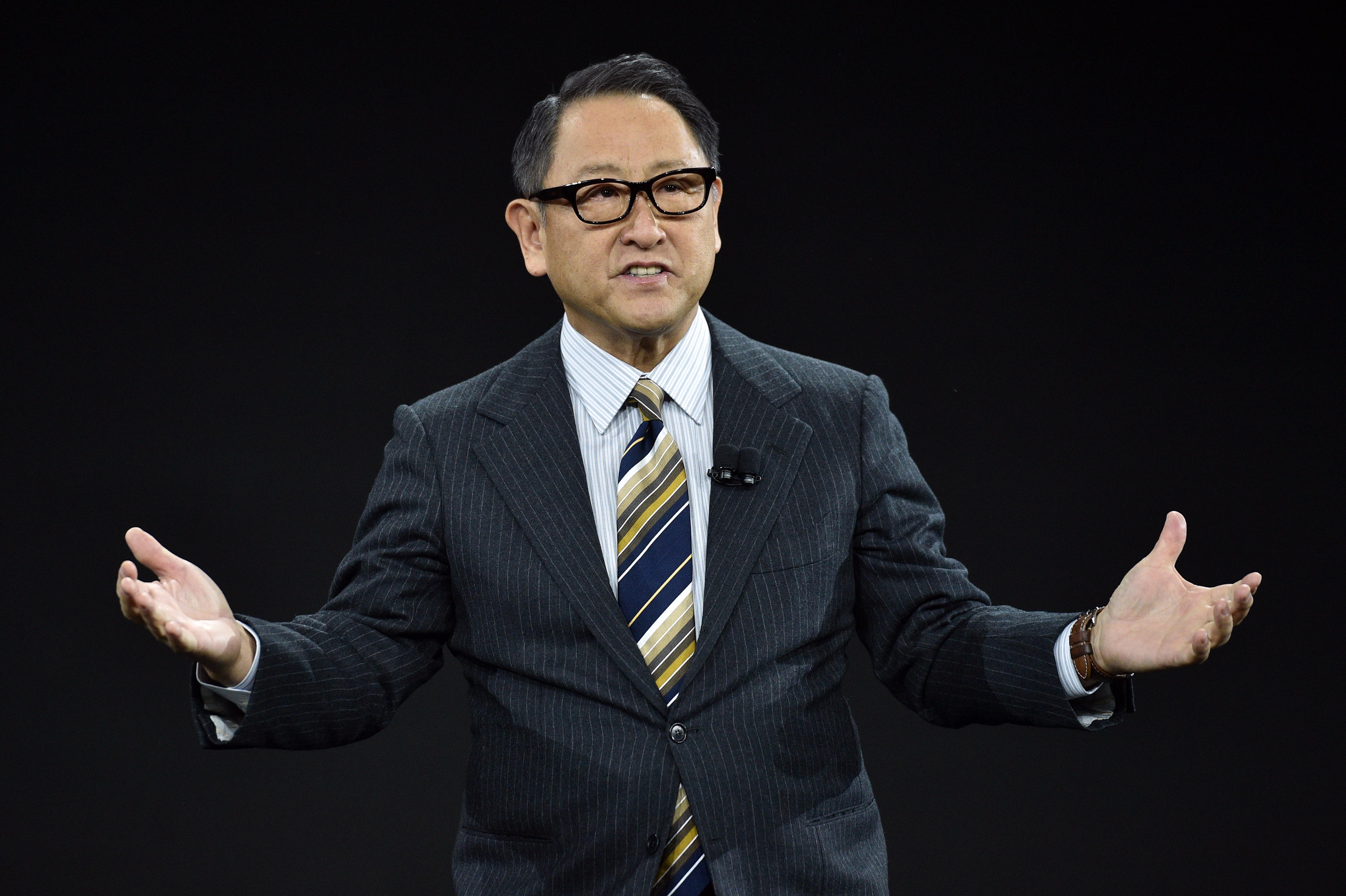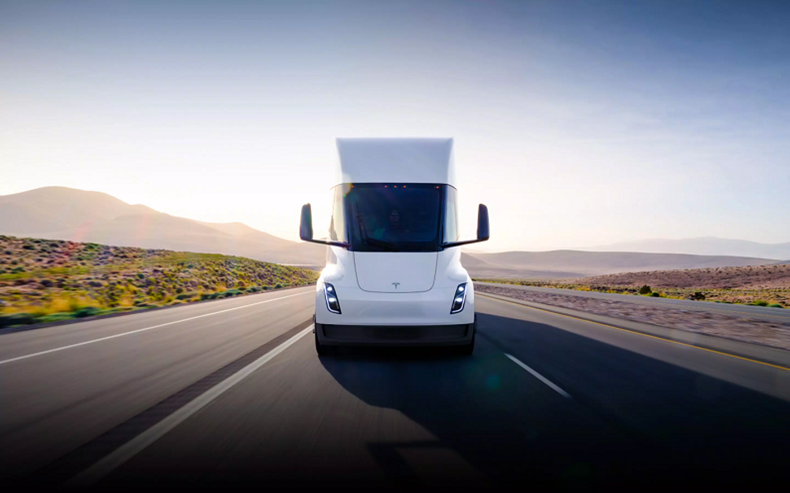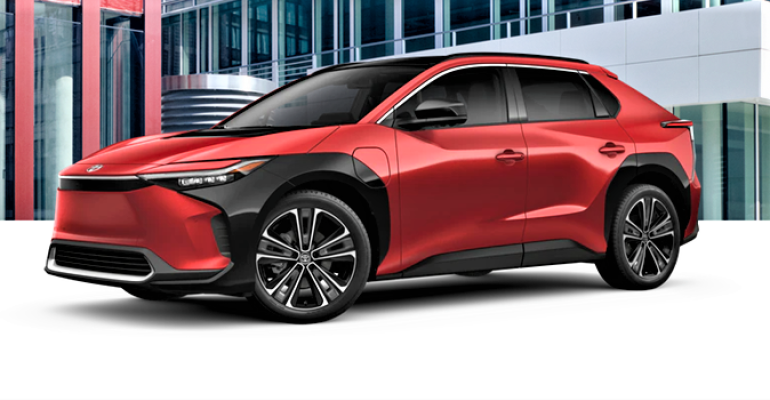When Toyota CEO Akio Toyoda speaks, the industry listens.
When the Japanese industrial leader recently threw shade on electrified-vehicle goals and regulatory targets in the U.S., Europe and elsewhere, those who are resistant to the speedy transition from internal-combustion engines to batteries and hydrogen fuel cells gave nods and winks of approval.
But that assumes Toyoda is right.
“Just like the fully autonomous cars that we are all supposed to be driving by now, EVs are just going to take longer to become mainstream than media would like us to believe,” Toyoda (pictured, below) says in recorded remarks to dealers at the automaker’s annual meeting in Las Vegas. “In the meantime, you have many options for customers.”

Toyota is the leading seller of hybrid vehicles, and CEO Toyoda also believes there is more mileage to be gotten out of plug-in hybrid-electric vehicles (PHEVs) that run on batteries for a short distance before an ICE takes over. Sales of PHEVs have not been impressive over the past decade, though, and many analysts and industry executives don’t favor them because of the dual powertrains that are required.
Toyota, the world’s largest automaker, plans to invest $70 billion in electrified vehicles over the next nine years. Half of that will be for battery-electric vehicles ( BEVs). While it’s a substantial investment in electrification, it’s smaller than the budgets of some of its rivals, and not as much as might be expected given Toyota’s global dominance.
Toyoda says the industry and regulators should be pumping the brakes, for example, on the U.S.’s target of BEVs accounting for 50% of all new light passenger vehicles by 2030 for three key reasons:
That many consumers buying BEVs – between 7 million and 8 million based on historic sales trends – will take longer to achieve than 7 years from now.
There will be “tremendous shortages” of lithium and battery-grade nickel over the next decade, leading to supply-chain issues.
The reliability and ease-of-use of the fast-charging infrastructure in key markets like Europe and North America will take longer to come together, especially for urban dwellers.
Independent surveys indicate the public is leaning toward the adoption of BEVs to eventually replace ICE propulsion in personal vehicles and even heavy trucks such as the Tesla Semi (pictured, below).

A Pew Research Center survey found that a solid majority of U.S. adults support providing tax and other incentives to increase the use of electric or hybrid vehicles. At the same time, however, American drivers are divided over whether they personally would consider going electric the next time they’re shopping for a new vehicle. And a majority oppose phasing out gas-powered vehicles altogether in the years ahead, as California and some other states are doing.
Two-thirds of Americans support providing incentives to increase the use of electric and hybrid vehicles. Democrats and independents who lean Democrat are much more likely than Republicans and GOP leaners to say they favor incentives to increase EV use (84% to 46%), the survey shows.
About four-in-ten Americans (42%) say they would be very or somewhat likely to seriously consider purchasing an EV the next time they’re looking for a new car or truck. A slightly larger share (45%) say they would be not too likely or not at all likely to do this, while 13% say they do not plan to purchase a vehicle in the future.
For the U.S. to meet its goal of having half of new cars sold be BEVs by 2030, the government and the private sector are going to have to educate, inform and influence another 10% or so of the car-buying public to get comfortable with electric vehicles.
But given the broad portfolio of carbon-producing industries and the impact of natural carbon producers like forest fires to negate what progress we make in greening the world’s personal mobility fleet, including the fueling many of the world’s power plants with coal and natural gas, Toyoda’s remarks about pumping the brakes on BEVs seems rational.
The argument against the Toyota CEO, however, is twofold. First: the planet, with its rising temperatures, doesn’t care what Toyoda thinks. Second: If all industries and all countries eventually are to get on the same page about climate change, alternative green-energy sources and carbon emissions, then consumers and governments can lead the effort to pressure all stakeholders to fall into line.





